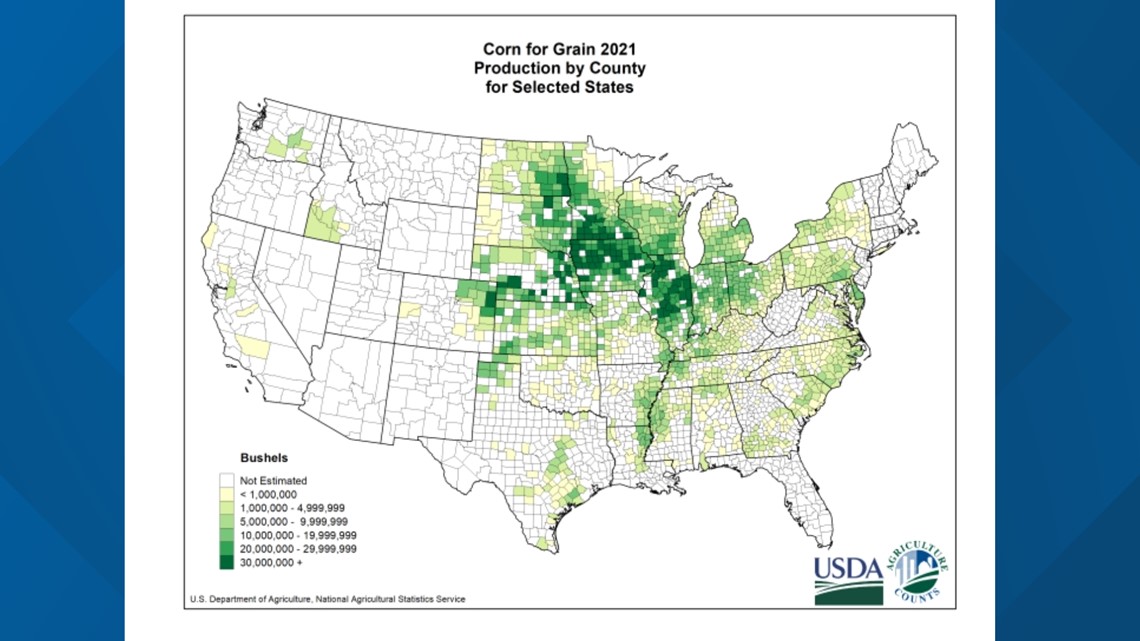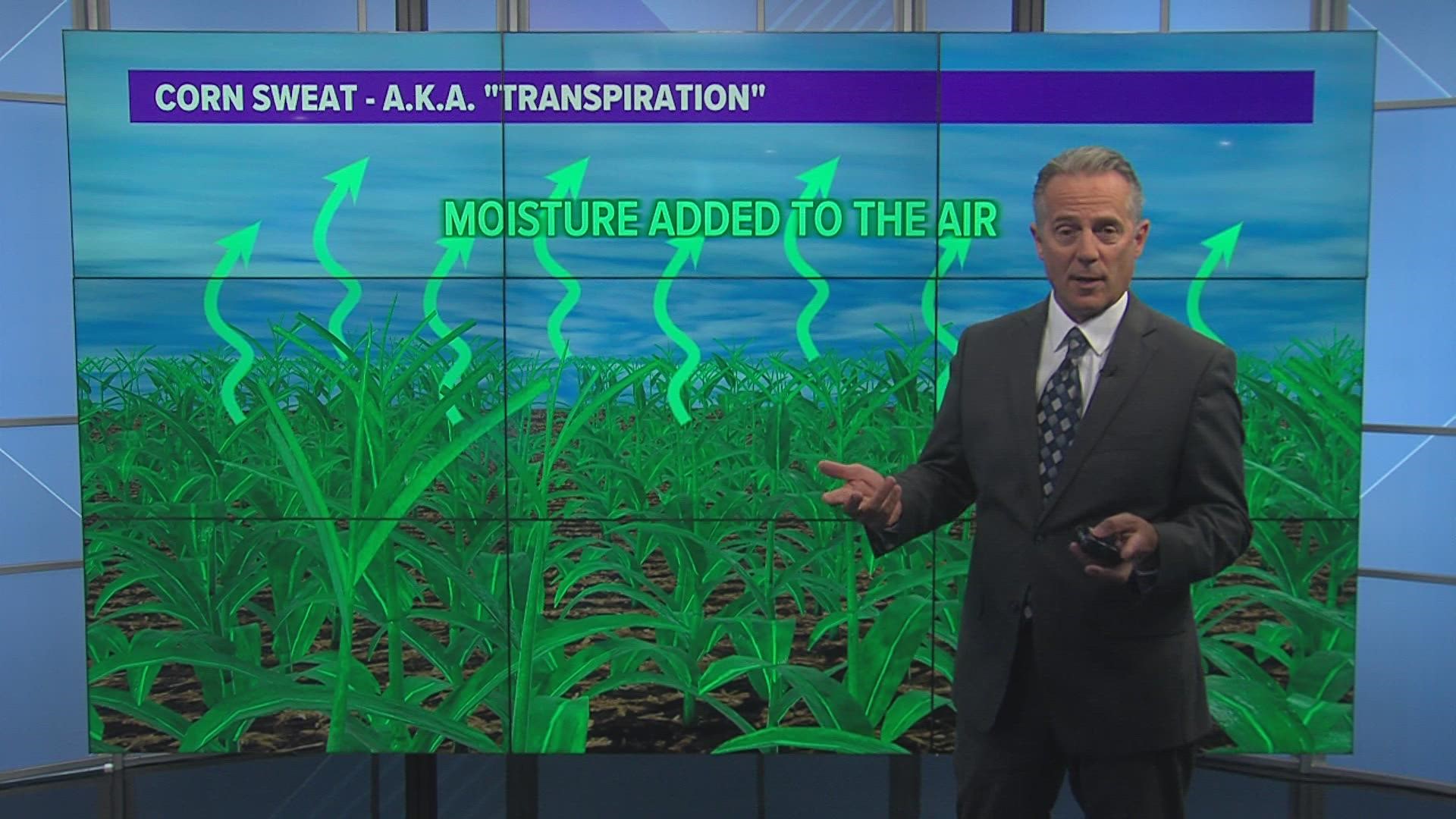DES MOINES, Iowa — "It's not the heat, it's the humidity."
Iowa farmers produce 2.7 billion bushels of corn every year, more than any other state.
All of that corn has a direct effect on how uncomfortable it feels outside during the summer months. It's all thanks to a process called evapotranspiration, or corn sweat.
Corn crops naturally pull water from their roots and release moisture through their leaves in the form of water vapor.
In dry conditions, corn will naturally reduce transpiration by rolling its leaves and exposing less surface area to lose moisture. But when water is plentiful, a lot of moisture evaporates off the leaves just like sweat evaporates off our skin.
An acre of corn can add up to 4,000 gallons of water vapor to the atmosphere per day!
This results in localized increases in humidity, which in turn causes the heat index to increase.
On breezy days, that increased water vapor gets carried to other parts of the Midwest not necessarily surrounded by corn fields.
Higher humidity can also prevent overnight temperatures from dropping as low as they would in a drier environment.
During the summer, the corn belt is often home to the highest dew points in the country.
In fact, Appleton, Wisconsin once recorded a dew point of 90°, tied for the highest on record in the U.S.
For perspective, the air starts to feel muggy once dew points reach the 70s, and feels absolutely sweltering once dew points climb to the 80s.
Corn sweat reaches its peak in July and August when corn matures.



